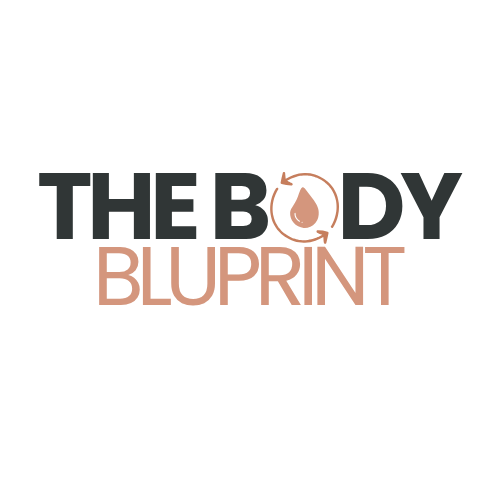3 Steps to Naturally Boost Progesterone for Better Hormone Balance
Progesterone is one of the most important hormones for women’s reproductive health. It plays a vital role in regulating menstrual cycles, supporting fertility, and preparing the body for pregnancy. Low progesterone levels can lead to irregular cycles, PMS, difficulty conceiving, or challenges in maintaining a pregnancy.
The good news? With the right lifestyle changes, nutrient-dense foods, and targeted supplements, you can naturally support your body’s ability to produce and maintain healthy progesterone levels.
Here are three practical steps you can take today to boost progesterone naturally.
Step 1: Implement Lifestyle Habits to Support Progesterone
Manage Stress
When you’re under stress, your body prioritises cortisol (the stress hormone) over progesterone because both hormones are produced from the same building block: pregnenolone. Pregnenolone is often called the “mother hormone” because it’s the starting point for many of the body’s steroid hormones, including cortisol, progesterone, estrogen, and testosterone.
When stress is high, your body diverts more pregnenolone down the “cortisol pathway” to keep you in survival mode. This leaves less available for progesterone production — a phenomenon sometimes called the “pregnenolone steal.” Over time, chronic stress can deplete progesterone levels, which may lead to irregular cycles, PMS symptoms, and difficulties with fertility.
That’s why stress management is key for hormone health. Supporting your nervous system helps keep cortisol in check and frees up more resources for healthy progesterone production.
Simple daily practices can make a big difference:
Deep breathing or meditation
Regular exercise (without over-training)
Spending time outdoors in nature
Reducing screen time, especially before bed
Prioritise Sleep
Sleep is essential for hormone production and balance. Poor sleep or disruptions to your circadian rhythm can lower melatonin levels, which indirectly reduces progesterone.
Aim for 8–9 hours of quality sleep each night to support recovery and ensure the corpus luteum (the part of the ovary that produces progesterone after ovulation) functions effectively.
Reduce Endocrine Disruptors
Endocrine disruptors (found in plastics, cleaning products, pesticides, and even personal care products) interfere with hormone balance. They can reduce progesterone production and negatively affect fertility.
Consider reducing your exposure by:
Choosing natural cleaning and beauty products
Avoiding plastics where possible
Filtering your water
Storing food in glass or stainless steel instead of plastic
Step 2: Eat Foods That Naturally Support Progesterone
While no foods contain progesterone directly, certain nutrient-dense whole foods help your body produce and regulate this key hormone.
Prioritise Nutrient-Rich Foods
Focus on foods high in zinc, vitamin B6, magnesium, vitamin C, vitamin E, selenium, and omega-3 fatty acids.
Some of the best choices include:
Seeds: sunflower, sesame, pumpkin, flaxseed (great for seed cycling)
Protein sources: chicken, beef, organ meats, eggs
Fish & seafood: especially salmon and other omega-3 rich options
Avocados
Leafy greens: spinach, kale
Beans & lentils
Cruciferous vegetables: broccoli, cauliflower, cabbage
Avoid Inflammatory Foods
Inflammatory foods like refined sugar, processed oils, wheat, and dairy may negatively affect progesterone levels in some women. Aim to eat unrefined, whole foods as much as possible.
Step 3: Consider Supplements to Boost Progesterone Naturally
Certain supplements can further support progesterone production. Some are available over-the-counter, while others require professional guidance. Always check with your healthcare provider before starting a new supplement.
Commonly Recommended Supplements
Vitex (Chaste Tree Berry) – often used to support progesterone, best taken in the morning (not during the first 5 days of the cycle).
Zinc – essential for reproductive health (avoid on an empty stomach) 🤢🤢.
Vitamin B6 (Pyridoxal-5-Phosphate / P5P) – helps support progesterone synthesis.
Magnesium (Magnesium Glycinate) – supports stress management and hormone balance.
Progesterone Creams & Oils – topical creams (such as wild yam cream) are available, but always check ingredients and source.
Micronised Progesterone – a prescription option that must be used under medical supervision.
Your Next Steps for Hormone Balance
Progesterone plays a central role in hormone balance, fertility, and overall wellbeing. By focusing on lifestyle changes, hormone-supportive foods, and evidence-based supplements, you can give your body the tools it needs to maintain healthy progesterone levels.
Remember: everyone’s body is different. What works for one woman may not work for another, and sometimes professional guidance is the best way forward. If you suspect low progesterone is affecting your cycle or fertility, consult a Naturopath or integrative healthcare practitioner for tailored support.
Hannah
Helpful resources
Join my exclusive TTC Community here 👉🏽 Join the community
Book a free 30-minute Fertility Chat here 👉🏽 Book a free chat
Check out seed cycling for hormone balance here👉🏽
Connect with Hannah
Instagram 📱- @Thebodybluprint_
Facebook 🥳 @TheBodyBluprint
I'd love to hear from you! If you have any questions about fertility tracking, the blog, or just want to share your own experiences, please don't hesitate to reach out below ❤️
Email ✉️ Hannah@thebodybluprint.com.au
If you’d like to learn more about achieving pregnancy with FAM, check out my signature program, Transform Your Cycle at the Work With Me page for an overview of all the supports available.



